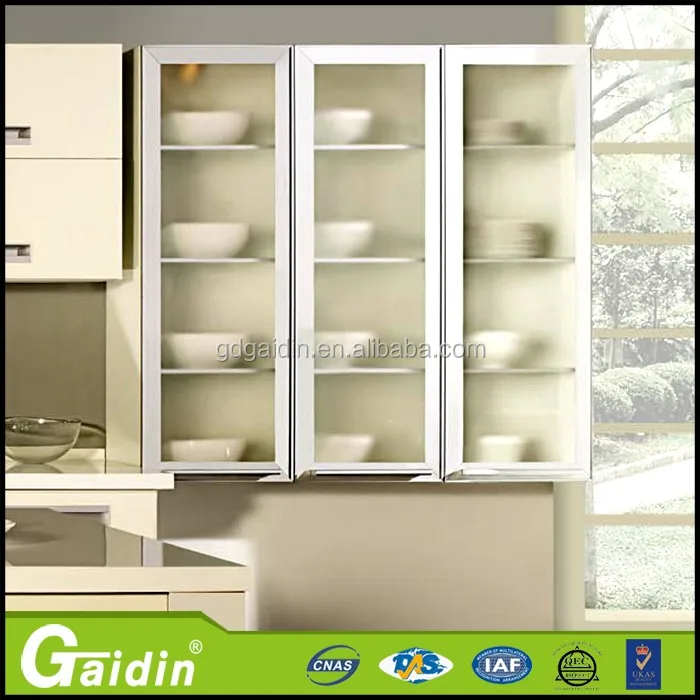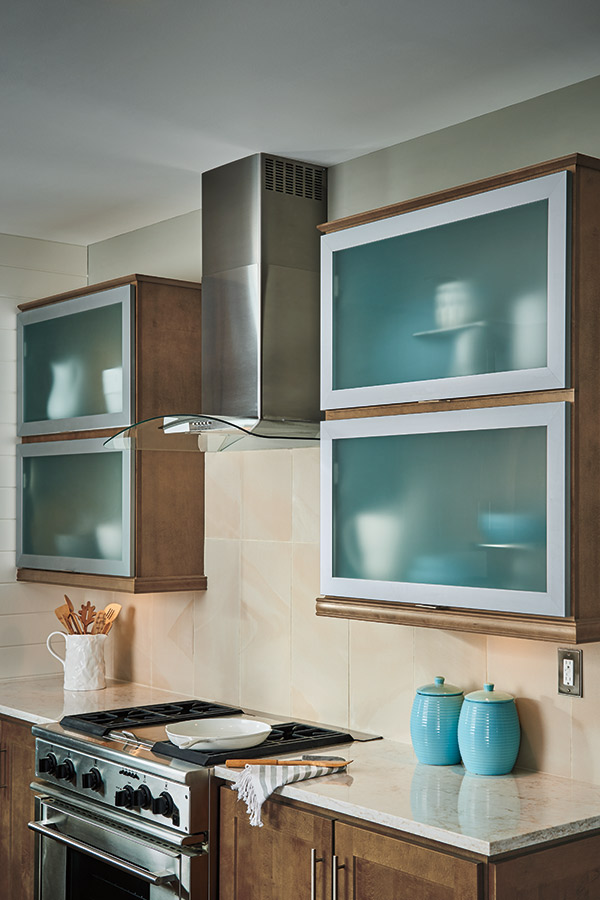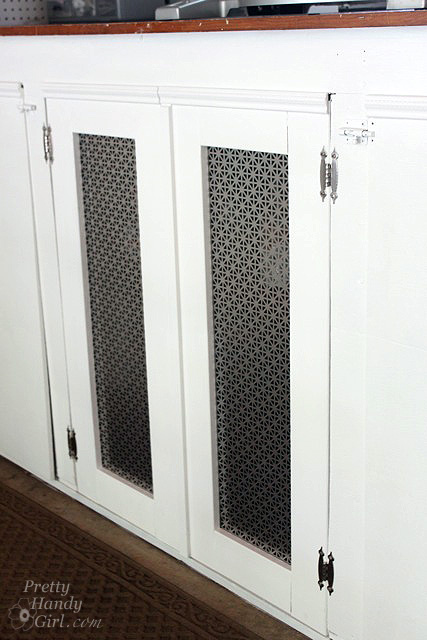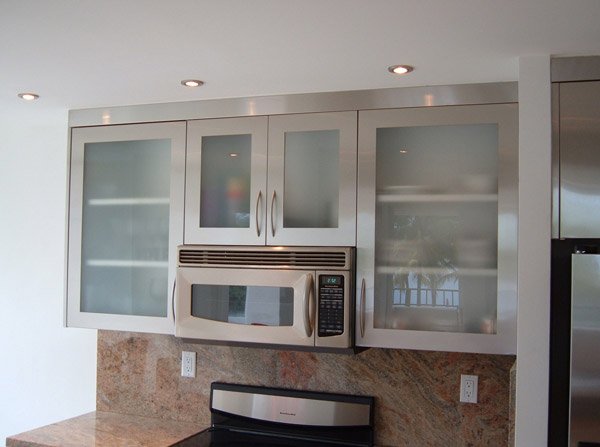Metal frame kitchen cabinets have been making a resurgence in modern kitchen designs, thanks to their sleek, industrial look and robust durability. Traditionally seen in commercial kitchens due to their strength and ease of maintenance, metal frame cabinets are now being incorporated into residential homes for a variety of reasons. These cabinets offer a unique aesthetic that pairs well with modern, minimalist, and industrial design styles. They are typically constructed using materials such as stainless steel, aluminum, or powder-coated steel, which provide both durability and an eye-catching appearance. Metal frame cabinets are known for their longevity, making them a great investment for homeowners who want a kitchen that will stand the test of time.
One of the main advantages of metal frame kitchen cabinets is their durability. Metal is incredibly strong and resistant to warping, cracking, or swelling, which are common issues with wooden cabinets, especially in high-moisture environments like kitchens. Metal cabinets can withstand extreme temperatures, moisture, and even pests like termites, making them an ideal choice for homeowners seeking a low-maintenance option. Additionally, they are highly resistant to dents and scratches, especially when made from stainless steel or heavy-duty aluminum, making them perfect for high-traffic kitchens.

A key feature of metal frame kitchen cabinets is their versatility in design. These cabinets are available in a wide range of finishes, from polished stainless steel for a sleek, reflective look, to matte black or powder-coated finishes for a more subdued, modern feel. Homeowners can also mix and match metal frames with other materials, such as glass or wood, to create a more customized and unique kitchen design. For example, metal frames paired with frosted glass doors can give a kitchen a modern, airy feel, while combining metal with wood can add warmth and balance to the industrial look.
Another benefit of metal frame kitchen cabinets is their ease of maintenance. Metal surfaces are non-porous, meaning they do not absorb liquids or odors, making them easy to clean and sanitize. This is especially important in a kitchen, where hygiene is paramount. A quick wipe-down with a damp cloth is usually enough to keep metal cabinets looking clean and shiny. Stainless steel cabinets, in particular, are resistant to staining and corrosion, though they can show fingerprints or smudges. However, these can be easily cleaned with a stainless steel cleaner or a mixture of vinegar and water. In addition, metal cabinets are less prone to wear and tear compared to wooden ones, which may require refinishing over time.

Despite their many advantages, metal frame kitchen cabinets can have a few downsides. One common concern is that metal can feel cold or industrial, especially in a home setting. However, this can be mitigated by incorporating other materials like wood, stone, or even soft textiles in the kitchen design. Additionally, metal cabinets tend to be noisier than wood when closing doors or drawers. Many manufacturers have addressed this issue by including soft-close mechanisms that minimize noise and ensure a smooth, silent operation.
Cost can also be a factor when considering metal frame kitchen cabinets. High-quality stainless steel or custom metal cabinets tend to be more expensive than traditional wood cabinets. However, given their durability and long lifespan, they can be a worthwhile investment in the long term. Metal cabinets are often viewed as an investment in both function and style, offering a modern look that won’t require frequent repairs or replacements.

In terms of environmental impact, metal frame kitchen cabinets can be a sustainable choice. Many metal cabinets are made from recycled materials, and at the end of their life, the cabinets themselves can be recycled. Stainless steel, in particular, is 100% recyclable, which makes it an eco-friendly option for homeowners who are conscious about their environmental footprint. Moreover, the longevity of metal cabinets reduces the need for frequent replacements, further contributing to their sustainability.
Customization is another important consideration when choosing metal frame kitchen cabinets. These cabinets can be tailored to fit a wide variety of kitchen layouts and styles. For instance, homeowners can opt for metal frames with custom door inserts, such as glass or reclaimed wood, to create a personalized look. Custom metal cabinets can also be designed to fit unusual spaces or accommodate specific kitchen needs, such as extra-deep drawers or built-in shelving for pots and pans. This flexibility in design makes metal cabinets a versatile choice for kitchens of all sizes and layouts.
For those looking for a retro or vintage aesthetic, metal frame kitchen cabinets can also be a great option. Metal cabinets were popular in mid-century kitchens, particularly in the 1940s and 1950s, and many homeowners are now opting to recreate this look with modern touches. Vintage-inspired metal cabinets, often powder-coated in bright colors like red, turquoise, or yellow, can bring a sense of nostalgia to a kitchen while still offering modern conveniences like soft-close drawers and high-quality hinges.

One of the most appealing aspects of metal frame kitchen cabinets is their ability to create a seamless, streamlined look in the kitchen. Unlike wood cabinets, which often have visible grain patterns and joints, metal cabinets offer a smooth, clean surface that enhances the overall aesthetic of a minimalist or modern kitchen. The clean lines and reflective surfaces of stainless steel or polished metal can also help make a smaller kitchen feel more open and spacious, as light bounces off the cabinets and creates the illusion of more space.
In terms of functionality, metal frame kitchen cabinets offer a range of features that make them highly practical. Many modern metal cabinets come with full-extension drawers, which allow for easy access to items stored in the back. They also often include adjustable shelves, pull-out trays, and built-in organizers, making it easier to keep the kitchen neat and organized. Additionally, metal cabinets can support heavy loads, making them ideal for storing bulky items like cast iron cookware or large appliances.
Another advantage of metal frame kitchen cabinets is their resistance to fire. Metal does not burn, which can provide peace of mind for homeowners concerned about fire safety in the kitchen. While it’s not a substitute for fire prevention measures, having fire-resistant cabinets can offer an added layer of protection in the event of a kitchen fire. This makes metal cabinets a popular choice for both commercial and residential kitchens where safety is a priority.

Metal frame kitchen cabinets are also highly resistant to pests, such as termites or rodents, which can be a concern with wooden cabinets. The smooth, impenetrable surface of metal does not provide a habitat for insects, and it is difficult for pests to chew through metal materials. This can be especially important in areas where pest infestations are a common problem, offering an added layer of security for homeowners.
When it comes to design compatibility, metal frame kitchen cabinets can be paired with a wide range of countertop materials. Whether it’s marble, granite, quartz, or even concrete, metal cabinets offer a neutral, modern backdrop that can complement various styles and finishes. The versatility of metal cabinets allows them to work well in both contemporary and traditional kitchens, depending on the finishes and accessories chosen.
Finally, metal frame kitchen cabinets are often favored by those who love a high-tech or professional look in their kitchens. They are commonly found in restaurant kitchens due to their strength, ease of cleaning, and resistance to bacteria. Homeowners who enjoy cooking and want a kitchen that mirrors the look and functionality of a professional workspace often turn to metal cabinets for their practicality and sleek appearance.

Common Mistakes to Avoid
One common mistake homeowners make when choosing metal frame kitchen cabinets is neglecting to factor in the noise associated with metal. Metal cabinets, especially those without soft-close mechanisms, can be quite loud when doors and drawers are slammed shut. Opting for cabinets with sound-dampening features can help alleviate this issue and improve the overall kitchen experience.
Another mistake is focusing too much on aesthetics and not enough on the practicality of metal cabinets. While metal can create a striking look, it’s important to consider how it will fit into the daily routine of your kitchen. For example, stainless steel cabinets can show smudges and fingerprints easily, which may not be ideal for families with young children or in homes with heavy kitchen use.
Improper installation is another common pitfall. Metal cabinets require precise installation to ensure they are level and secure. Unlike wood, which can be sanded down or adjusted during installation, metal is less forgiving and needs to be installed correctly from the start. Hiring professionals with experience in metal cabinet installation is crucial to avoid costly mistakes.
Many homeowners also overlook the importance of coordinating their metal cabinets with other kitchen materials. Metal cabinets can sometimes appear too cold or industrial, especially in a residential kitchen. It’s important to balance the look with warmer materials, like wood or stone, to create a cohesive design.
Finally, failing to budget for custom features can be a mistake. While metal cabinets are highly durable and stylish, adding custom elements like glass doors or special finishes can significantly increase the cost. Homeowners should factor in these additional expenses when planning their kitchen renovation.

Are metal frame kitchen cabinets more expensive than wood cabinets?
In general, metal frame kitchen cabinets tend to be more expensive than traditional wood cabinets due to the cost of materials and manufacturing. Stainless steel and custom metal finishes are particularly costly, but they offer greater durability and longevity. While metal cabinets may have a higher upfront cost, their durability can make them more cost-effective in the long run, as they won’t need to be replaced or refinished as often as wood cabinets.
How do I clean and maintain metal frame kitchen cabinets?
Metal frame cabinets are easy to maintain and typically require just a quick wipe-down with a damp cloth to remove dust, smudges, or spills. For stainless steel cabinets, you can use a mixture of vinegar and water or a stainless steel cleaner to remove fingerprints and keep the surface shiny. It’s important to avoid abrasive cleaners that can scratch the surface of the metal. Metal cabinets are also highly resistant to moisture and pests, which reduces the need for intensive maintenance.
Can metal frame kitchen cabinets rust?
High-quality metal frame kitchen cabinets, particularly those made from stainless steel or powder-coated steel, are designed to resist rust and corrosion. However, in environments with high humidity or exposure to water, it’s important to ensure that the metal is properly treated or coated to prevent rust. Regular cleaning and avoiding prolonged exposure to moisture will also help prevent rust from forming.

Are metal cabinets safe for home kitchens?
Yes, metal cabinets are perfectly safe for home kitchens. They are often chosen for their fire resistance and ability to withstand high temperatures. Additionally, metal does not emit harmful fumes, unlike some wood cabinets that may be treated with chemicals or varnishes. Metal cabinets are also non-porous, making them more resistant to bacteria, which can contribute to a healthier kitchen environment.
Do metal frame kitchen cabinets go out of style?
Metal cabinets offer a timeless, sleek aesthetic that can fit into various design styles, including industrial, modern, and even retro kitchens. While trends may come and go, metal cabinets, especially when paired with complementary materials like wood or glass, are versatile enough to remain stylish over time. Their durability and functionality also ensure they’ll continue to be a popular choice in both residential and commercial kitchens.
Can I install metal frame kitchen cabinets myself?
While experienced DIYers can install metal frame kitchen cabinets, it’s generally recommended to hire professionals. Metal cabinets are heavier than wood and require precise installation to ensure they are level and properly aligned. Improper installation can lead to issues like doors not closing properly or cabinets becoming unstable. Professional installers with experience in metal cabinetry can ensure that your kitchen is both functional and aesthetically pleasing.

Related Posts:
- Kitchen Cabinets Thunder Bay
- Country Kitchen Cabinet Pulls
- Kitchen Cabinet Company Names
- How To Arrange Your Kitchen Cabinets
- Average Depth Of Upper Kitchen Cabinets
- Kitchen Cabinet Dampers
- 30 Inch Wide Kitchen Pantry Cabinet
- Black Kitchen Cabinets With Wood Countertop
- Light Oak Kitchen Cabinets
- Kitchen Colors With Oak Cabinets And Black Countertops